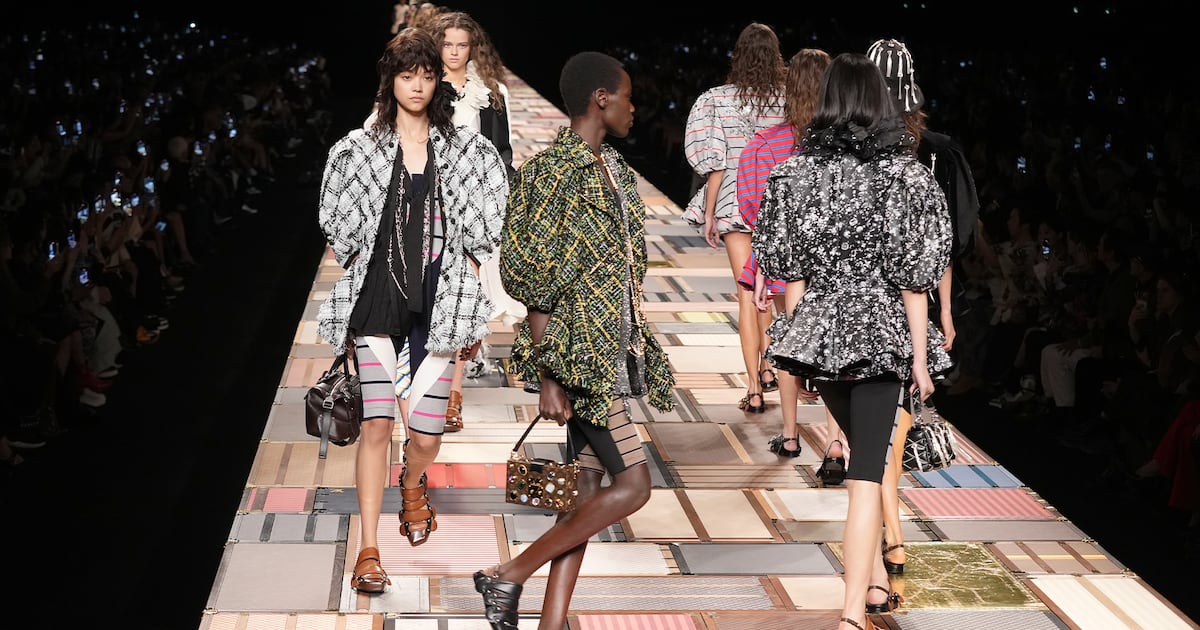
LVMHâs critical fashion and leather goods division reported third-quarter sales down 5 percent, missing the expectations of analysts who had predicted between 0 and 2 percent growth.
With unrivalled marketing budgets and a global edge competing for retail estate and talent, the Louis Vuitton, Dior and Loewe owner typically outperforms the luxury sector. Slipping sales at the conglomerate could signal even tougher times ahead for smaller rivals.
Group-wide, third-quarter sales fell 3 percent on an organic basis to â¬19.1 billion ($21 billion). LVMH said the numbers represented âgood resilience in the current context.â
After gradually cooling from post-pandemic highs, luxury demand has dropped sharply across key regions this year. Macroeconomic headwinds and aggressive price hikes that turned off less wealthy buyers have made it hard for fashion brands to keep up momentum, particularly as consumers shift their spending back to other priorities like health, wellness, and travel.
LVMHâs retailing division, which operates Sephora, and the perfume and cosmetics division dominated by Parfums Christian Dior both eeked out modest growth, with sales rising 2 and 3 percent respectively. The wine and spirits division was hardest hit, as the group struggles to get cognac sales back on track in the key Chinese market.
Stay tunedâ¦
Learn More:
Inside Luxuryâs Slowdown
Economic headwinds, high prices and a lack of novel design are all weighing on what was previously fashionâs most dynamic segment. LVMHâs quarterly results Tuesday will offer hotly-watched insights on the severity of the slowdown and how long it will last.
Disclosure: LVMH is part of a group of investors who, together, hold a minority interest in The Business of Fashion. All investors have signed shareholdersâ documentation guaranteeing BoFâs complete editorial independence.

